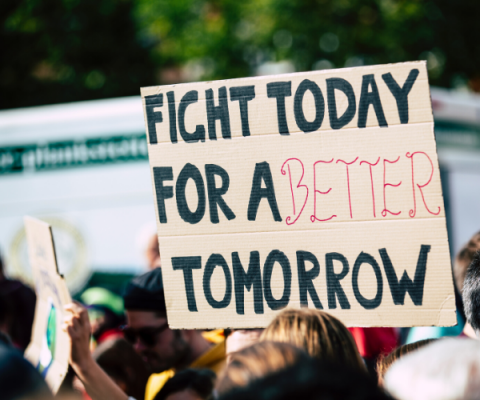Get Funding.
Create Change.
You are here
Beyond Policy Change – Assessing Social Justice Programs

When developing funding proposals for social justice programs, grant professionals tend to frame success in terms of direct impact on public policy. While changes in laws are often essential, focusing myopically on that result overlooks changes at the community level that drive legislative reform and that reach deep into our lives and result in lasting cultural change.
Identifying the specific social-change outcomes you hope to achieve is challenging, but it’s critical that the outcomes you propose accurately reflect your organization’s values and views along with an understanding of how social change works.
In 2002, Deborah L. Puntenney, Ph.D., wrote Measuring Social Change Investments, a seminal paper which documents research she conducted for the Women’s Funding Network. Dr. Puntenney acknowledges the common opinion that the goal of social change grants is to directly impact public policy, but concludes that history does not support that viewpoint when she writes, “Measuring outcomes only in terms of broad social change such as legislative change diminishes the importance of the many investments that comprise the groundwork for large scale change.” In other words, change in legislation alone won’t cut it—it won’t deliver the impact so vitally needed.
Likewise, a long-term study related to water policies found that focusing only on policy changes overlooked some “truly important results…including the building of social and political capital, the learning and change, the development of high quality information, new and innovative ideas, new institutions and practices that are adaptive and flexible, and the cascade of changes in attitudes, behaviors and actions.” (Sarah Connick and Judith E. Innes, 2006, Water Management in California)
When developing the outcomes for a social-change proposal, grant professionals should work hand-in-hand with the activists leading the charge. Talk, wrestle with what you think success will look like. What can you observe, count, or record to tell you your making progress toward your goals? What micro-level changes in attitudes, knowledge, skills, or behaviors will pave the way for larger scale social and cultural change?
In social justice work, involving the community in a participatory evaluation process can contribute to the long-range cultural shifts you’re working for. Engage people in planning the program, identifying evaluation measures, assessing progress, and using that learning to refine the work, so that the ongoing reflection and evaluation loop promotes community empowerment.
For a deep dive into this topic and a wealth of tools and resources to advance your thinking, download Considering Evaluation: Thoughts for Social Change and Movement-Building Groups (Catherine Borgman-Arboleda and Helene Clark, 2006). This is a free, open-source document that is as relevant today as it was when published. You’ll find it easily with a quick Google search.
You're welcome to link to these pages and to direct people to our website.
If you'd like to use this copyrighted material in some other way,
please contact us for permission: info@tgci.com. We love to hear from you!
A follow-up study of 385 of our graduates found documented that they won grants totaling over $21 million within just six months of completing the 5-day Grantsmanship Training Program®. Our training produces results!

